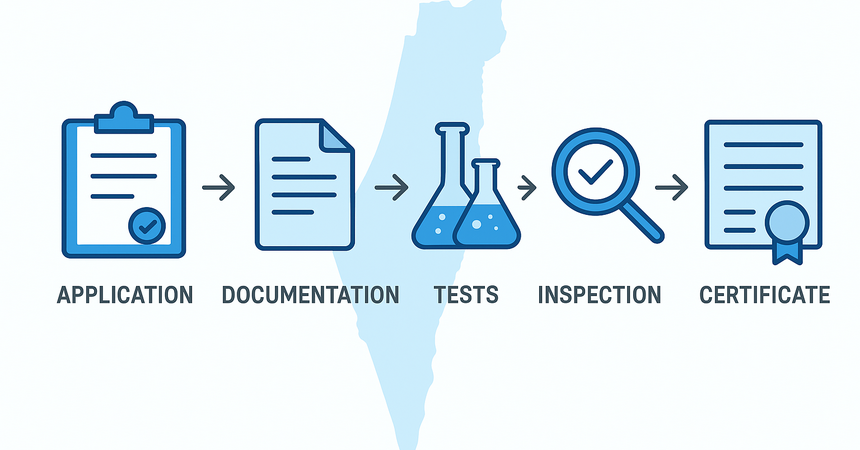Entering the Israeli market opens great opportunities for companies: the country boasts a stable economy, a high standard of living, and a well-developed international trade sector. However, to successfully launch products here, businesses must take into account strict requirements regarding quality and safety. Certification plays a key role, as it confirms compliance with local standards.
Regulatory Framework in Israel
Israel is known for having a relatively strict technical regulation system. The main authority responsible for standards and certification is the Standards Institution of Israel (SII).Products subject to mandatory certification cannot be imported or placed on the market without the appropriate authorization.
Regulation covers:
- consumer goods (household appliances, electronics, toys);
- construction materials and equipment;
- food and beverages;
- medical devices;
- cosmetics and chemicals.
Types of Certification
1. Mandatory Certification – required for products that may affect public health and safety. For example, electrical goods must undergo testing under electrical safety standards.2. Voluntary Certification – used to increase product competitiveness. While not mandatory, having a quality certificate often influences the decisions of Israeli partners and buyers.
Certification Process
The certification procedure in Israel includes several stages:1. Submitting an application to the SII or another authorized body.
2. Providing technical documentation: specifications, test reports, quality certificates from the home market.
3. Laboratory testing in accredited centers in Israel. In some cases, international test reports are accepted.
4. Factory inspection – particularly relevant for medical devices, food products, and electronics.
5. Issuance of the certificate and product registration.
Timeframes and Costs
- On average, certification takes from 1 to 6 months, depending on the product category.
- Costs depend on the number of tests, the volume of documentation, and the need for inspections.
- It is important to note that delays in document preparation can significantly extend market entry timelines, so companies are advised to prepare their package in advance.
- Practical Tips for Businesses
- Study the requirements for your product category at the planning stage of export.
- Ensure that documentation is translated into English or Hebrew according to requirements.
- Consider using international certifications (e.g., CE, FDA) to simplify the process – in some cases, they help speed it up.
- Work with local experts and consultants to minimize bureaucratic risks.
Conclusion
Certification in Israel is a mandatory step for entering the market and successfully promoting products. It requires serious preparation, attention to detail, and proper process management.Turn to WorldWideBridge – we handle all stages of certification end-to-end and help your business confidently enter the Israeli market.
